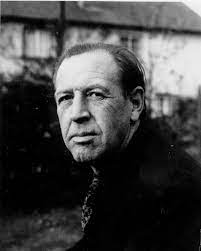Williams, Raymond

Bio: (1921-1988) British sociologist and literary critic. Raymond Williams studied at Cambridge and taught at Oxford. He is, above all, known as a Marxist-oriented sociologist of culture. In his early works Culture and Society 1780-1950 (1958) and The Long Revolution (1961a), he was the first one to deviate from the classical way in which the relationship between culture and society was observed in British social sciences. With the classical approach, culture is seen as what is produced only by the elite, which meets some high standards, and which should be defended from the pernicious influence of the masses. Williams rejected this approach to culture, and taking Edward Tylor's definition of culture as a starting point, argued that all forms of beliefs, customs, and cultural products that are part of people's daily lives should be studied, no matter which group or class creates these cultural patterns.
The culture of the elite and the culture of ordinary people should not be analyzed in isolation from each other, but it is necessary to study their mutual relations and the points where they intersect. To define such an approach to culture, he introduces the concept of "structure of feelings" which refers to the relationship between two types of culture and life in a society or a period. Although Williams was inspired by Marxism, he criticizes the classical Marxist approach to culture, where culture is only a consequence of relations in the economic structure (base). He believed that there was a relative autonomy of culture. This approach is evident in his analysis of working class culture in Britain. Since the workers did not have the opportunity to create literary or artistic works individually, they created their culture in collective conditions - in trade unions, cooperatives, and workers' parties. In The Country and the City (1973), Williams examines the relationship between rural and urban social life in British literature and social thought.
In the mid-1970s, Williams' study of culture was visibly influenced by Marxist authors Antonio Gramsci and Lucien Goldmann. This influence is present in Williams' books Marxism and Literature (1977) and Problems in Materialism and Culture (1980). Williams, in this period, introduces a distinction between three types of ideology: dominant, residual, and emerging. The dominant ideology is the ideology of the ruling class, the residual ideology belongs to the class that loses its socioeconomic significance, while the emerging ideology occurs in classes that do not have socio-economic power. Both residual and emerging ideologies can oppose the dominant ideology or they can act in parallel with it, without questioning it.
Fields of research
Art City Classes Crowd Culture Customs, Social Domination Elites Everyday Life Ideology Media Rural Subculture Technology Working ClassTheoretical approaches
Cultural Studies (Critical Pedagogy)Main works
Culture and Society 1780-1950 (1958);
The Long Revolution (1961);
Drama from Ibsen to Brecht (1961);
Communications (1962);
The Country and the City (1973);
Television: Technology and Cultural Form (1974);
Keywords (1976);
Marxism and Literature (1977);
Politics and Letters: Interviews with New Left Review (1979);
Problems in Materialism and Culture (1980);
Contact: Human Communication and its History (1981);
Socialism and Ecology (1982).

